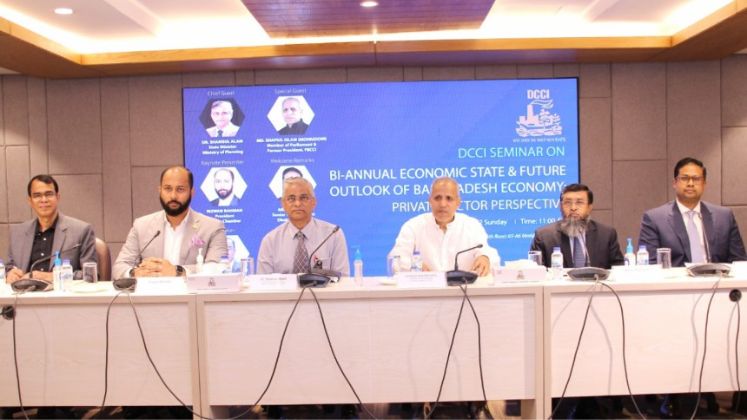
As per the Purchasing Managers’ Index (PMI), the overall business pace in Bangladesh declined by 2.1 points in April when compared to the preceding month.
According to the data, the GDP shrank in April as major industries including construction and services slowed. However, this loss was mostly offset by the industries’ explosive expansion in manufacturing and agriculture.
According to the PMI, a survey-based indicator that was initially made public in Bangladesh to assess the state of the economy, business growth decreased to 62.2 points in April from 64.3 points in March.
At its Gulshan office, the Metropolitan Chamber of Commerce and Industry (MCCI) launched the PMI results in collaboration with Policy Exchange Bangladesh (PEB) and with funding from the UK’s Foreign, Commonwealth, and Development Office (FCDO).
The report covers four sectors – service, manufacturing, agriculture, and construction.
The PMI for the construction industry fell from 67.7 in March to 63.8 in April, while the PMI for the service sector was 63.6 in March but fell to 56.2 in April.
Agriculture and manufacturing, on the other hand, expanded more quickly. The PMI for the manufacturing sector was 68.4 in March and grew to 74.5 in April, while the PMI for the agriculture sector was 55.7 in March and increased to 60.9 in April.
As a leading economic indicator that sheds light on important economic sectors and detects emerging trends, the PMI aids in understanding the state of a nation’s economy. PMI surveys are widely used by both developed and developing nations to monitor changes in the business cycle and other economic factors.
A PMI score more than fifty indicates growth within a certain sector; values less than fifty indicate contraction.
“Despite a small decrease from the previous month, the economy remains on the expansion track with the new quarter. Robust growth was recorded for both the manufacturing and agriculture sectors, whereas the services and construction sectors posted slower growth,” according to the PMI findings.
Presenting the PMI report, M Masrur Reaz, chairman of PEB, said it is good that the decline is slight and the index is above 50 points.
However, the most important thing is to maintain its continuity, he added.
Reaz further said the PMI will be published on the 7th of every month. “We published the report after talking to about 500 traders.”
Additionally, he stated that the government policy makers would be able to determine which direction to look in thanks to the index. Likewise, the private sector will gain insight about the strength of the economic wheel.
Across many indicators, such as new orders, exports, factory output, input purchases, and supplier deliveries, the manufacturing sector showed a stronger pace of growth.






